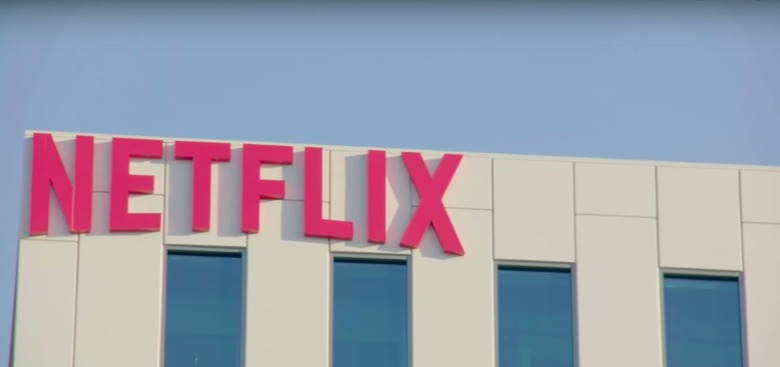Netflix's TV Cancellation Strategy, And How 'One Day At A Time' Might Stay Alive
The beloved Netflix series One Day at a Time was cancelled last week, and there's still technically a chance it could get picked up elsewhere – but a new report indicates that it almost certainly won't be snapped up by a rival streaming service. Read on to learn why, and to get a glimpse into the financial reasoning that goes into Netflix's TV cancellations.
Read the Fine Print
Netflix is famously secretive about its viewership numbers, and like most other entertainment companies, it's also fairly quiet about the specifics of its contracts. But a new report at Deadline is shedding some light on Netflix's practices.
When the streaming service cancelled all of its live-action Marvel shows, we wrote about how there were deals in place that would prevent those shows from jumping to a rival network for two to three years. I thought that might have been specific to the initial, highly-publicized Marvel deal from several years ago, but this new report says that stipulation applies to all Netflix TV shows that come from other studios, meaning everything not produced in-house. The site suggests this may be why we haven't seen the critically-acclaimed comedy series American Vandal picked up by any other company since Netflix cancelled it last year.
The Possible Future of One Day at a Time
However, the contract for One Day at a Time, which was produced by Sony TV, not Netflix, is apparently slightly different: while the show can't jump to a rival streaming network for that same 2-3 year period, it seems like the door is open for it to be picked up by a traditional broadcast network or even a cable network.
"While the ban on the series airing new episodes on SVOD platforms is a couple of years, I hear the window is just a few months for linear networks, which would allow the Latinx family comedy to pursue a fourth season on a traditional network that could air the next broadcast season," Deadline says, floating the possibility that ABC, FOX, CBS, or even a cable channel like TBS may swoop in to give One Day at a Time a new home. (The outlet also bizarrely implies that Netflix could also theoretically "grant it a release" from its contract due to the widespread outcry on social media due to its cancellation, which would allow any interested party to pick it up. That seems...incredibly unlikely.)
Why Netflix Cancels Its Shows
I try my best to stay on top of reports about Netflix and how they operate, but I've admittedly never heard these details before. According to Deadline:
It is widely known that Netflix employs a "cost-plus" model, offering to pay upfront a show's production costs plus a premium of 30%+ of the costs. Even after Netflix subtracts a distribution fee, outside studios are at break-even or in a positive territory from Day 1, versus having to deficit finance series for the first few seasons on most traditional networks. But in exchange for the upfront payments, outside studios give up the potential upside that normally comes up with owning a long-running successful series, including off-network and international sales.
Instead of getting big payouts from those types of sales later in a show's life, these shows receive bonuses from Netflix after every season. Shows from outside studios reportedly cost about 20% more than the Netflix-produced shows, and while their bonuses don't hit extreme heights, they still jump with each successive season; the bonuses for in-house Netflix original shows can skyrocket from a range in the hundreds of thousands of dollars all the way up to millions of dollars after a third season.
Crunch the Numbers
With that in mind, it's in Netflix's best financial interests for shows to not last more than three seasons. And considering how data-driven Netflix is (they make many decisions based on information gleaned from algorithms), another factor of why they cancel shows is when they hit a threshold where it no longer makes sense to create more.
Remember when most Netflix original series used to have 13 episode seasons? Have you noticed how that's dropped down to ten episodes, and sometimes even less than that? (Russian Doll, for example, only had eight episodes in its first season.) That's because Netflix's data revealed that "shorter seasons are considered optimal for consumption, and any additional episodes beyond 10 a season do not add value, so they are an unnecessary expense for the network."
The same mentality applies to a show's total number of seasons, too. If a series like Stranger Things becomes a pop culture phenomenon, of course Netflix is going to continue to renew it. But for shows that haven't connected in that same zeitgeist-y way, the streaming service reportedly "does not see significant growth potential beyond Season 3" – unless it's receiving significant awards attention. After a second or third season, those mid-tier shows will not drive new subscriptions – which, of course, is Netflix's primary goal. So Netflix will cancel middle-of-the-road shows and divert those funds to making something new and flashy in the hopes of hitting big and attracting new subscribers.
Naturally, they're prioritizing in-house shows from creators like Shonda Rhimes, Ryan Murphy, and Kenya Barris whom they've already signed to expensive deals – that way, they don't have to pay that "cost-plus" fee from outside studios, and then Netflix ultimately owns the content outright, which means they get to reap all of the benefits of success themselves instead of having to share the wealth.
To an outside observer, Netflix can often seem like they're making a series of odd choices, but seeing this information laid out like this gives me a clearer picture into how and why they make decisions – and it's also given me a great reason never to get too attached to any show on their service, because you never know how long it's going to last before they decide to pull the plug.




